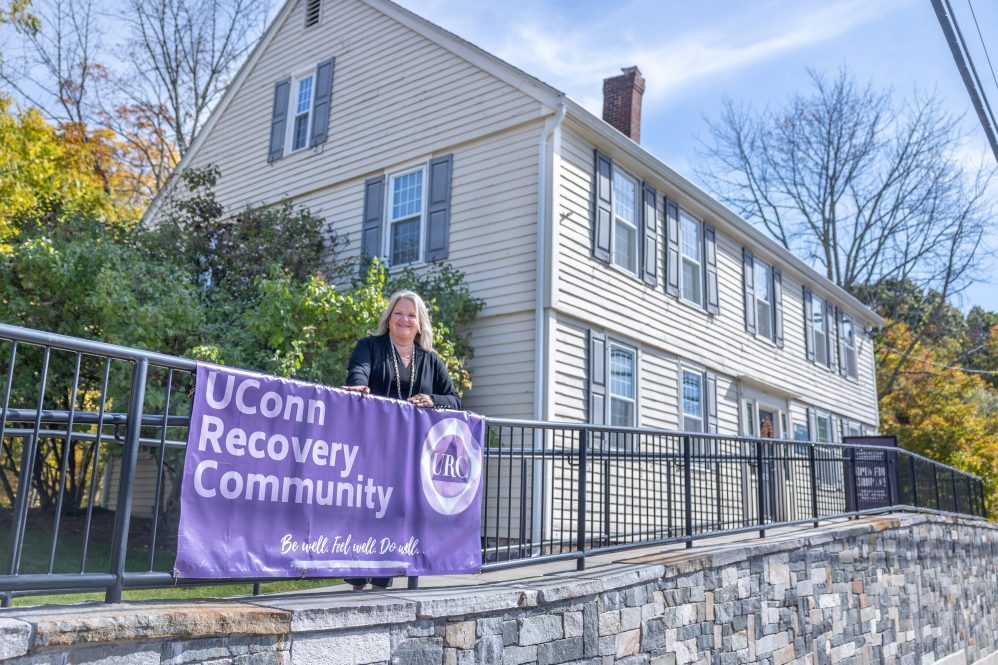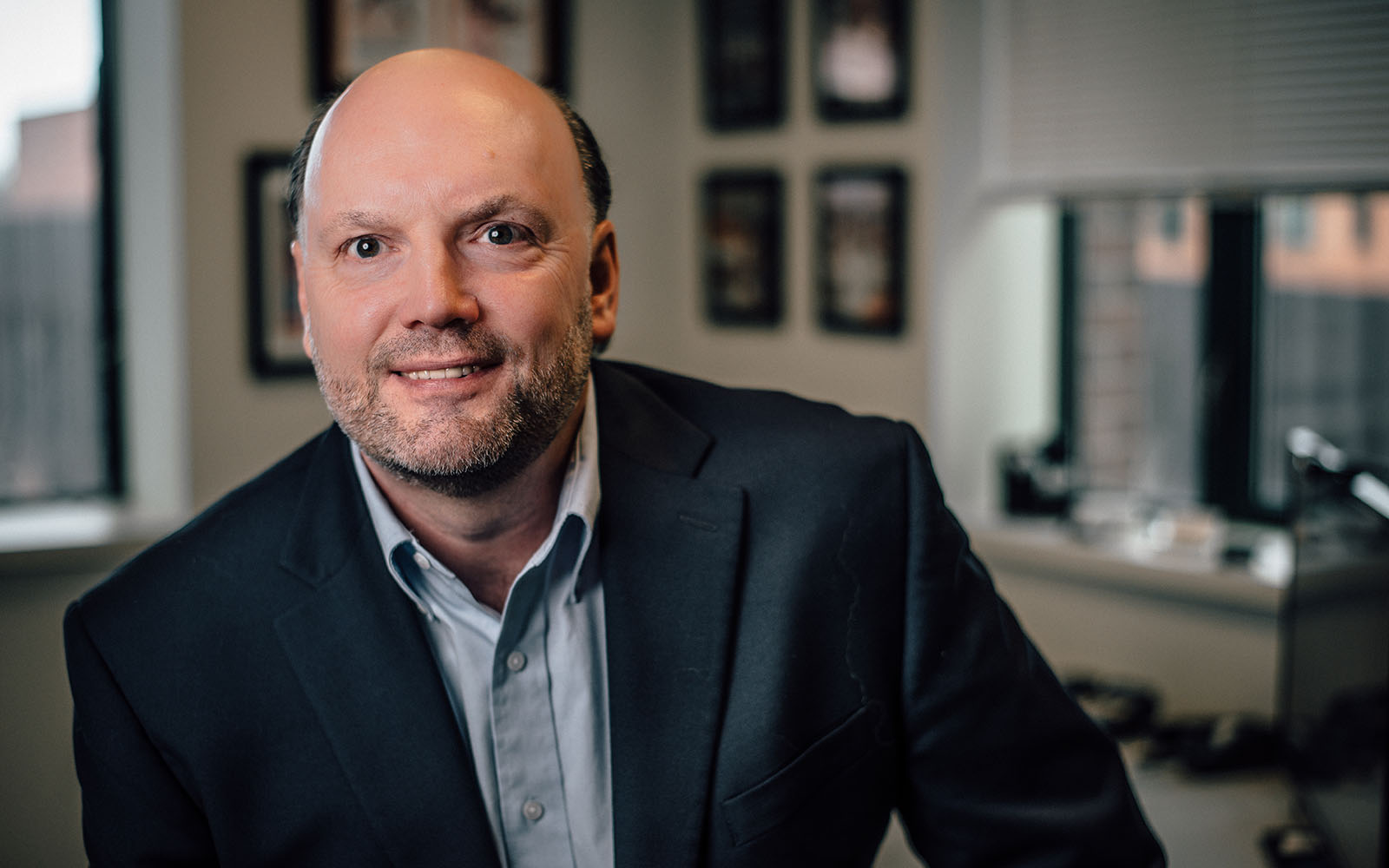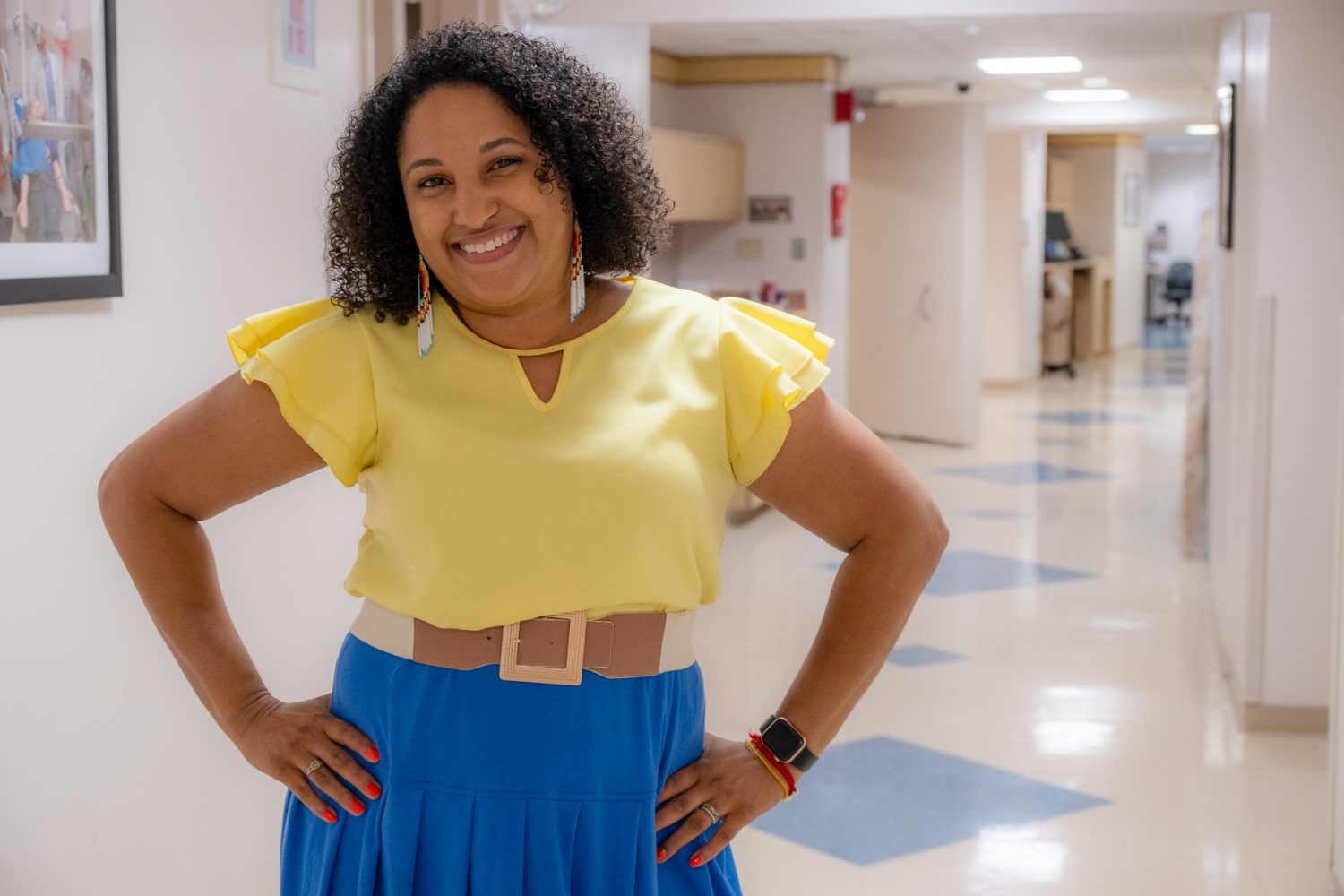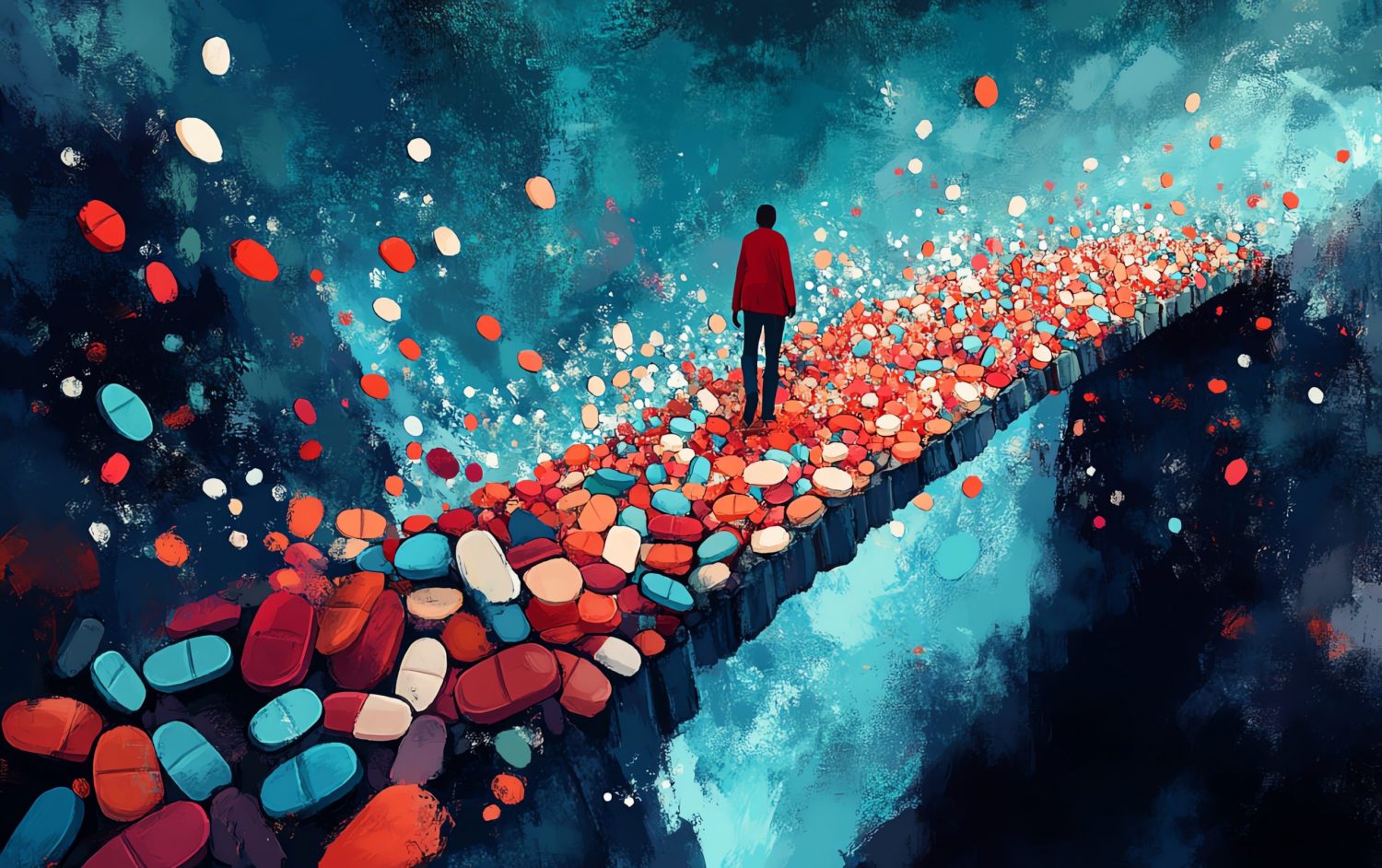Students are flocking in record numbers to the Cordial Storrs House, where the UConn Recovery Community has expanded its space, drop-in hours, and outreach for help in recovering from substance use disorders.
The Recovery Community, or URC for short, is a nine-year-old program under UConn Student Health and Wellness (SHaW), partnering with medical and mental health staff to support students. At the Recovery Community Center, located in the renovated 18th century house on Rte. 195 once owned by the Storrs family, these students have access to a quiet, substance-free space where they can study, relax, and connect with others in recovery like Health Promotion Manager Sandy Valentine.
With her office now at the Community Center, she, her staff, and UConn students can access the space more frequently for drop-in hours. Valentine says these extended hours throughout the week have attracted record numbers of students.
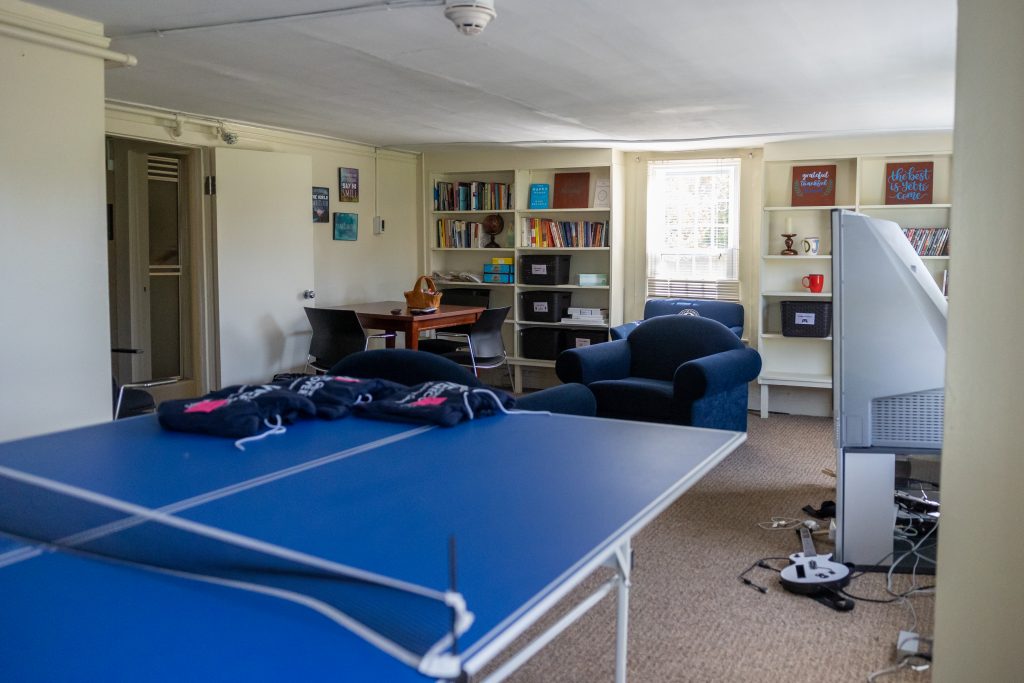
“We’ve seen more students in [this] first month than we’ve seen in a whole academic year,” Valentine says.
Upstairs at the Community Center, graduate assistants are available to meet with students. There is also a game room with a television and lending library, a meditation room, and a private room, which Valentine says many commuter students use for telehealth appointments. Below, on the entrance level, students can grab snacks and make food together in the kitchen, or do homework in the dining room.
“Everyone I met here has been very supportive,” says a student who is part of the recovery community. “I found an AA sponsor that I met through this community who’s been helping me a lot with getting adjusted to being a sober college student.”
Several formal programs occur at the Community Center as well. On Mondays, All Recovery Meetings occur in the community room on Thursdays, where new technology installed in May allows those at UConn’s regional campuses to attend virtually.
Recovery Yoga sessions are held on Thursdays, too, at the Student Recreation Center, which includes yoga practice followed by group discussion.
Valentine and her staff are also trained recovery coaches who meet with students one-on-one without a fee to create a wellness plan that best meets their needs. While Valentine stresses this coaching is not therapeutic, she and her team can connect students with in-area and on-campus medical and mental health partners.
“What my hope is for this space on our campus is that it’s a space where you can be vulnerable, you can trust that your confidence is going to be kept by those you share with, and nobody is expecting you to be perfect,” says Valentine.
The Recovery Community Center is accepting of wherever students are in their recovery journey, and welcomes those whose path is not sobriety. Valentine just asks that students accessing the space be 24-hours substance-free, as the community wants to honor those practicing sobriety.
Recently, URC has also expanded its outreach to those seeking support for mental and behavioral health issues like anxiety and eating disorders, a change Valentine says happened organically.
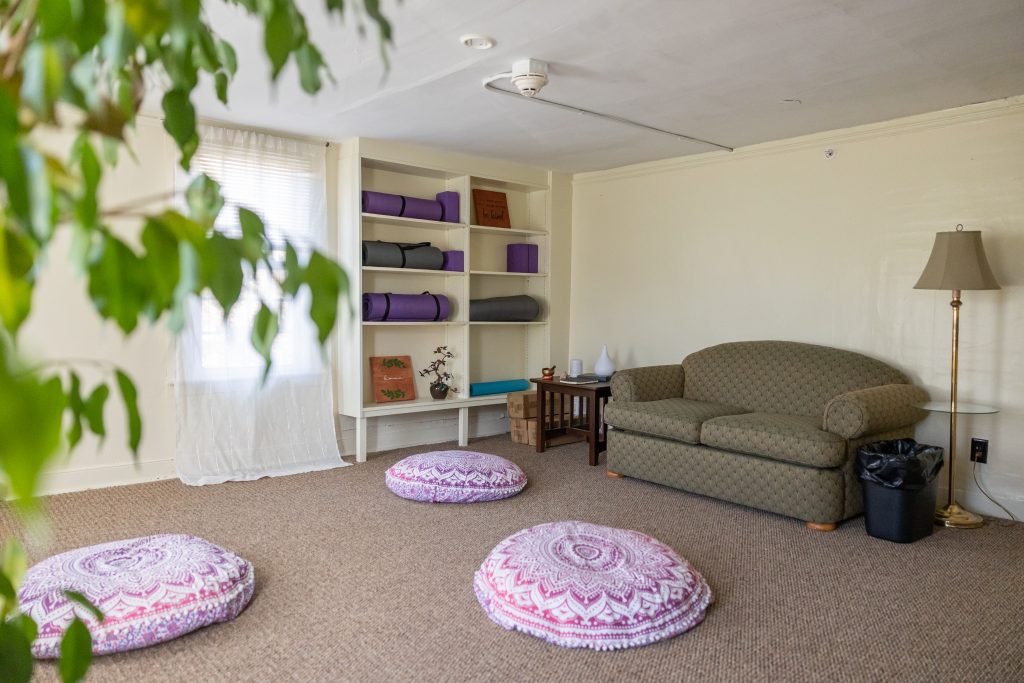
“Many of our students who have a substance use disorder have a co-occurring disorder, and if you look at the substance use disorder recovery tools and practices, they can also serve as helpful and supportive tools and strategies for those with other mental and behavioral health disorders,” Valentine says.
The doors of the Recovery Community Center are even open to faculty, staff, and students who are allies of those in recovery.
“Just because a student is coming to the Community Center, it doesn’t necessarily mean that they’re in recovery. It could be somebody who’s caring and looking for support,” says Valentine.
The URC offers such support through virtual Friends of Recovery meetings, available to “anyone with love for a Husky,” as Valentine puts it. Twice a month, two-hour Recovery Ally Training sessions are also offered to educate students, faculty, and staff about the positive language they should use when talking about recovery. Valentine says that at a recent recovery walk event, the assistant secretary of the Substance Abuse and Mental Health Services Administration (SAMHSA) was particularly impressed by URC’s Recovery Ally program.
Looking forward, URC will be celebrating 10 years at UConn in February, and is working toward making the University as recovery-friendly as possible.
“Our big goal is that students are comfortable asking for help instead of feeling stigmatized, that students, staff, and faculty intervene with empathy when they encounter someone struggling, and that recovery is understood, respected, and celebrated,” Valentine says.
